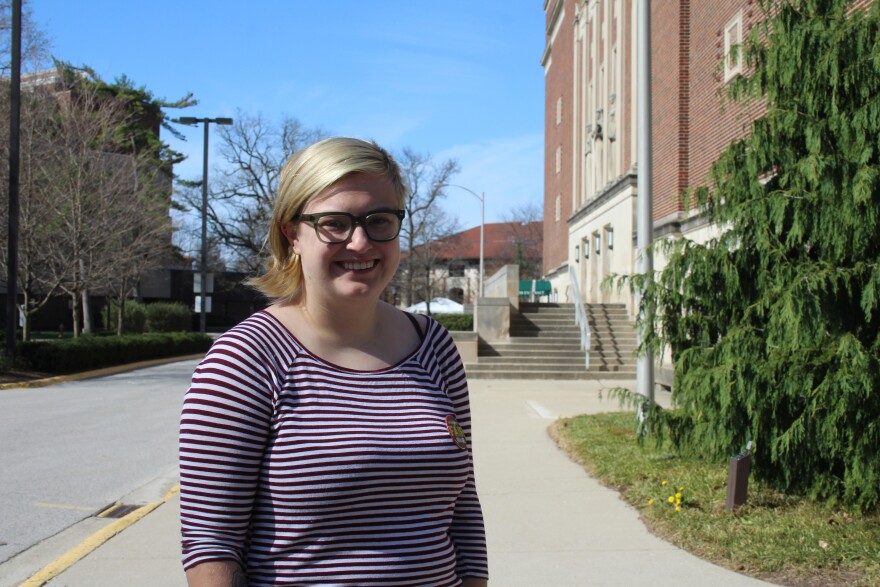Graduate students at Purdue University are hoping that worker strikes at Indiana University will help build momentum for their own efforts to institute a living wage on campus.
“Living wage” is a calculation used to understand what someone needs to be paid in a specific region of the country in order to afford basic needs such as food, housing, and clothing — but also healthcare costs, or child care. It’s a more complex calculation than federal poverty line calculations, which critics argue fail to take in regional differences and a broader set of needs.
Several student advocacy groups published a petition in October calling for a $15 an hour minimum wage for all campus workers - with an increase to $20 by 2026.
Purdue University last week announced a $15 an hour minimum wage for full-time hourly workers and a stipend increase for graduate workers.
But Olivia Gearner, third-year Purdue PhD student and co-chair of the Greater Lafayette Democratic Socialists, said that’s still not enough. She said the base stipend increase will go from a minimum of roughly $19,000 dollars per year to $24,000.
“If you consider what the living wage is kind of extrapolated over a whole year it comes out to $31,200,” she said. “Graduate students even with the recent increase are still well below what we would need to keep up with the cost of living.”
The Massachusetts Institute of Technology’s living wage calculator puts the living wage for a single adult without children in the Greater Lafayette area at roughly $31,000 annually pre-tax — more than Purdue’s minimum stipend increase.
Gearner said even recent cost of living increases have left her struggling to pay things like her gas bill. She said her hope is to increase attention around the issue and bring demands to the university sometime in the fall.
“We are hoping that seeing what is happening at IU and a lot of other universities will motivate people here to do the same thing,” she said.
Gearner also said the hourly wage increase excludes part-time workers. She said she hopes to bring other hourly wage workers, not just graduate students, into their efforts to advocate for living wages.
“We really want dining workers, custodians, other staff who are making the minimum wage on campus to get involved,” she said. “We’re all in the same boat basically. Part of this idea is the university does a job of putting its different employees into different boxes. We’re wanting to break down those walls and get all workers on campus united together around a shared campaign we can organize around.”
A Purdue spokesperson did not respond to WBAA’s request to comment on the matter, but did link to an FAQ about the recent wage increase — which states that the new minimums “will move us into the top ⅓ of [Big Ten]institutions.”


